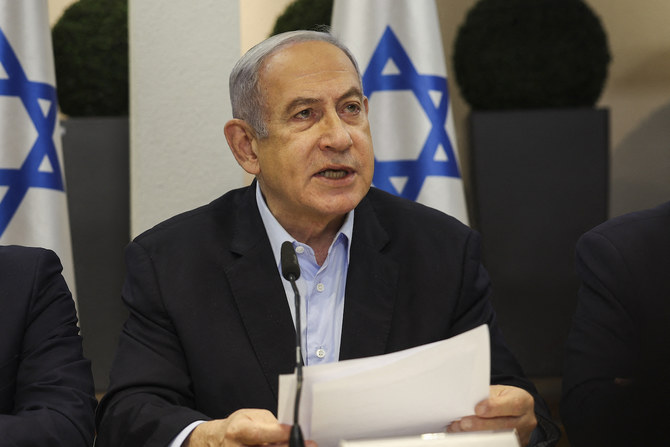Israel would make its own decisions on how to defend itself, Prime Minister Benjamin Netanyahu declared on Wednesday, while the United States led a 48-member UN group condemning Iran’s attack on Israel.
I want to make it clear – we will make our own decisions, and the State of Israel will do everything necessary to defend itself.
Netanyahu made the announcement on Wednesday after speaking with German Foreign Minister Annalena Baerbock and UK Foreign Secretary David Cameron, who visited Israel amid a possible escalation of the standoff between Iran and Israel, according to Arab media.
Former Israeli air defence commander, Brigadier General Zvika Haimovich, stated that the Israel’s war against Iran had begun. He noted that in the event of a war with Iran, the situation would become “very complicated” as Israel would have to fight a war on several fronts.
However, Israeli sources argue that a new Israeli strike on Iran is unlikely until after Passover. According to the report, Israel prepared but cancelled at least two planned retaliatory actions in the four days since Tehran had launched over 350 munitions in its direction.
Much of Israel’s leadership reportedly supports a direct response to Iran, with options under consideration including strikes against Iranian proxies rather than Iranian territory itself, as well as potential cyberattacks. Still, some lawmakers are concerned about a strike against Israel. Shas Party Chairman Aryeh Deri favours a more restrained approach and is against opening new fronts and escalating tensions.
Our enemies are looking for this, and we should not be dragged into it.
Meanwhile, US officials asked Israel to coordinate any actions with Washington and keep to a certain standard to prevent a full-scale war. Other countries have also expressed their concerns about a possible Israeli strike on Iran. German Foreign Minister Annalena Baerbock and British Foreign Secretary David Cameron urged Israeli Foreign Minister Israel Katz to avoid war.
Qatar’s Prime Minister and Foreign Minister, Sheikh Mohammed bin Abdulrahman Al Thani, called on the international community to take responsibility for ending the conflict in Gaza and underscored the importance of refraining from using humanitarian aid as an instrument of political influence.
EU and US reaction
Reacting to the tense situation in the Middle East, European Union member states on Wednesday (April 17) decided to tighten sanctions against Iran following its missile and drone attack on Israel. The United States and the G7 group of industrialised nations also announced plans to consider tougher sanctions on Iran. The US and other Western governments hope that new economic sanctions against Iran would help to convince Israel to limit the scope of its retaliatory measures.
The United States and 47 other countries at the UN issued a statement on Wednesday, unequivocally condemning the attacks on Israel by Iran “and its militant partners,” The Times of Israel reported. 48 countries, mostly Western, condemned the fact that ballistic and cruise missiles and striking drones “violated the airspace of several regional states, putting at risk the lives of innocent people in those countries, and appeared to traverse airspace near the holy sites in Jerusalem”.
We welcome the efforts to avert a further immediate escalation of violence in the region following the successful coordinated efforts to defend against Iran’s attack. We call on all regional parties to take steps to avert further escalation of the situation.
The countries also condemned Iran’s seizure of a Portuguese-flagged merchant ship near the Strait of Hormuz on Saturday, calling for the immediate release of the ship and its crew.
UN Secretary-General Antonio Guterres reiterated his call for “maximum restraint” by Israel and Iran. UN spokesman Stephane Dujarric declared that the rhetoric in the Middle East was becoming “increasingly dangerous”.
The Iranian attack on Saturday night became the first time Tehran launched a direct military assault on Israel. Israeli authorities stated that Iran launched over 300 drones and missiles, which were intercepted by air defence assets in conjunction with the US, UK, France, and Jordan.
Meanwhile, Iranian President Ebrahim Raisi warned that Israel’s “tiniest invasion” would entail a “massive and harsh” response.
